
Increased climate variability and extremes hinder the achievement of the #GlobalGoals of reaching food security for millions of smallholder farmers living in semi-arid areas. Water storage to buffer erratic rainfall offers smallholder farmers access to reliable fresh water supply for crops and livestock. However, conventional water infrastructure such as dams and large reservoirs tend to be environmentally disruptive and do not always benefit local communities. Further, large infrastructural investments tend to carry high risks and are often path dependent. This project, NaBWIG, seeks to help #endHunger and aims at improving the resilience of smallholders in Kenya and Ethiopia to cope with increased climate variability and water shortages through innovative and environmentally sound water storages for conjunctive use of surface water, groundwater and soil moisture. Together with stakeholders the project develops a portfolio of storage options making use of dry riverbeds of ephemeral rivers. The project formulates adaptive investment pathways, adopting an innovative stepwise approach, as opposed to the conventional large lump sum investments. The project employs a Use-Inspired research approach, developing new knowledge that help bridging the gap between the fundamental understanding of the biophysical characteristics of the shallow alluvial aquifers, and its application to serve farmers’ needs for sustainable and reliable fresh water to support their crops and livestock. To this end this project emphasizes the creation of new knowledge and tools through the cooperation between disciplines and a range of partners in Kenya, Ethiopia and the Netherlands.






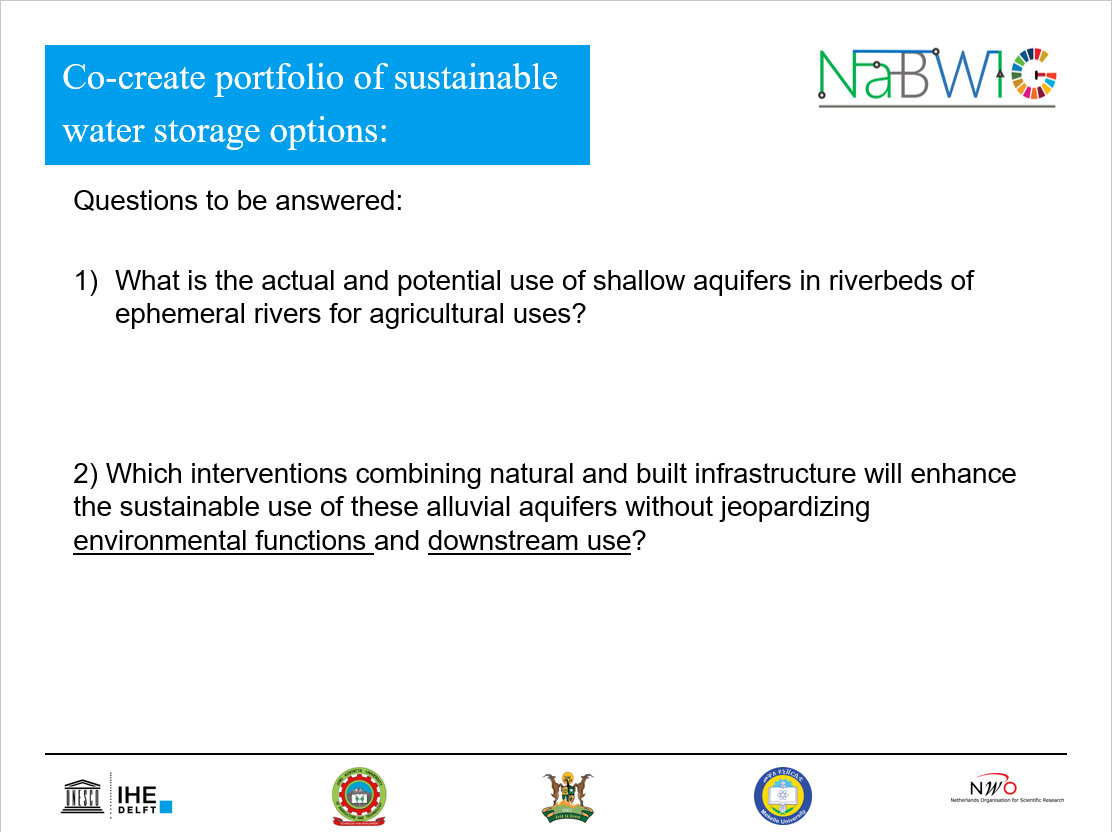
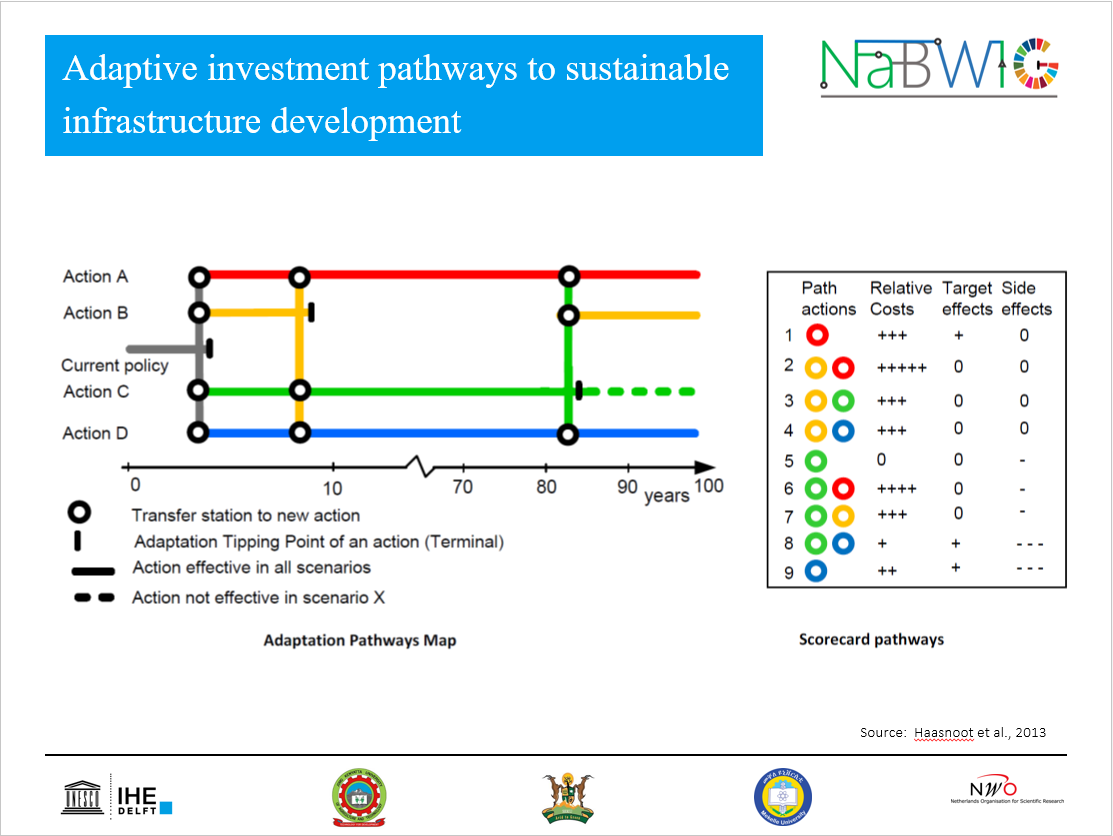
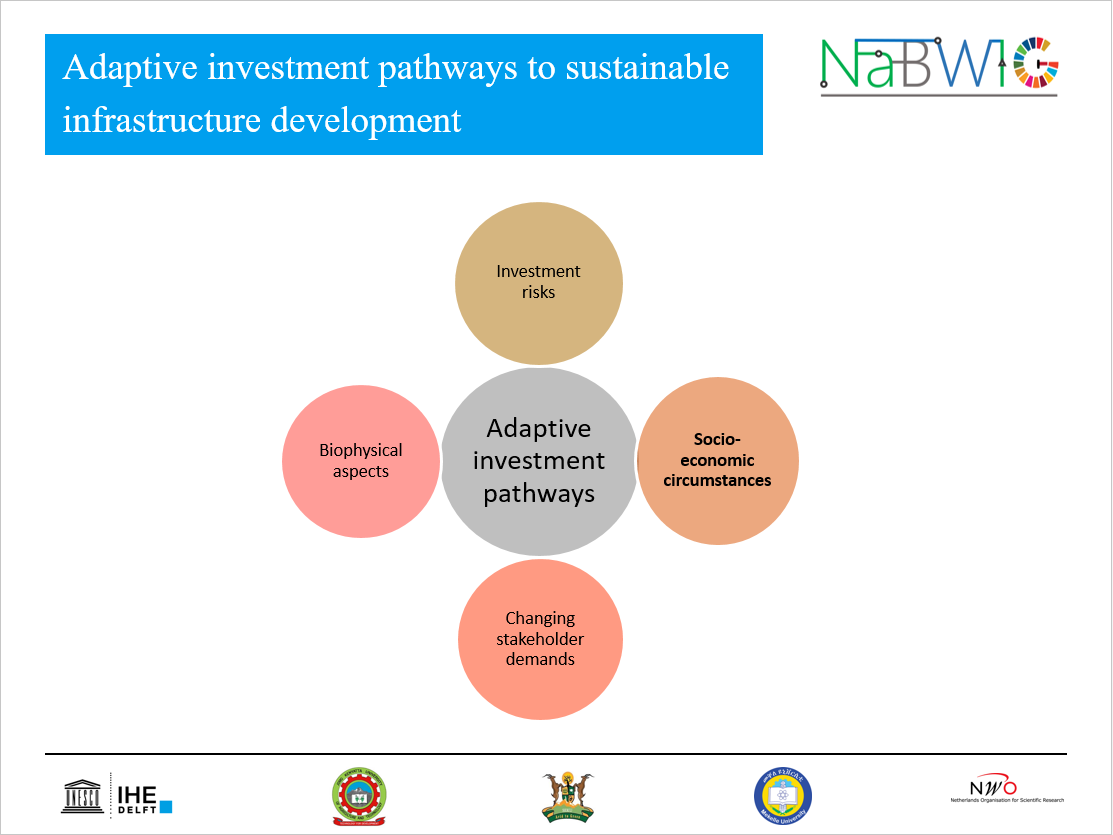
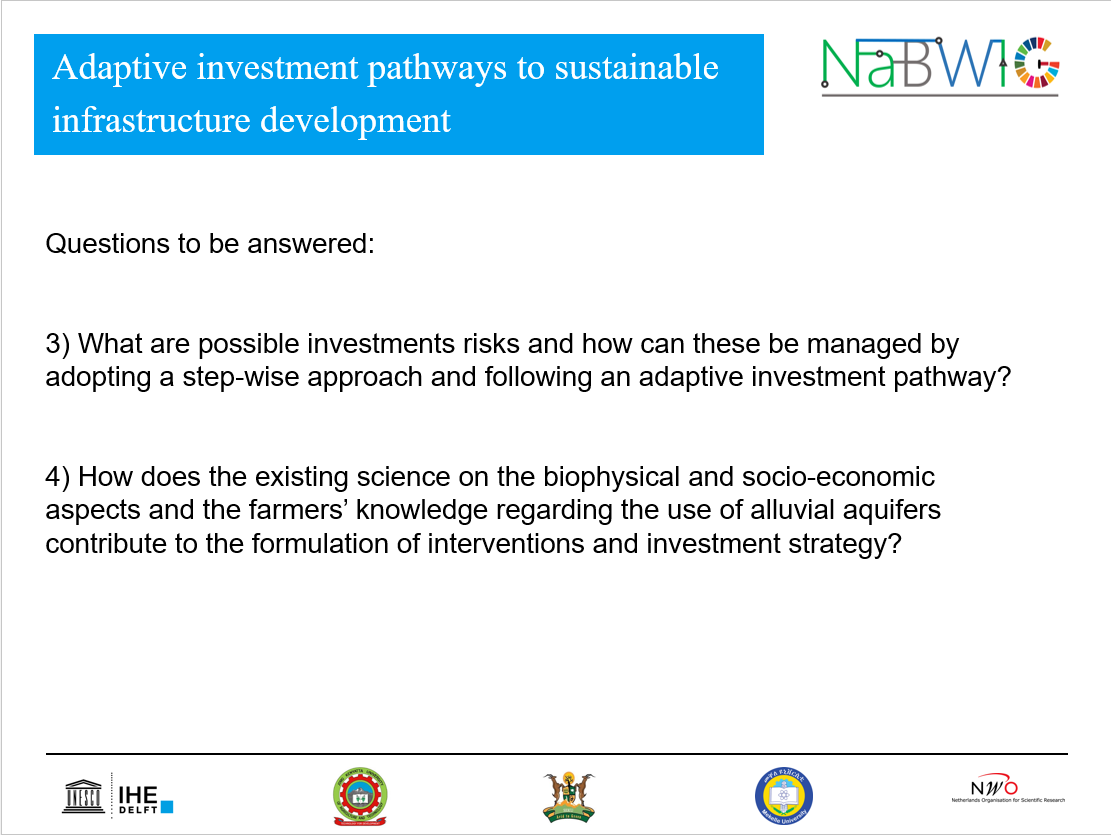
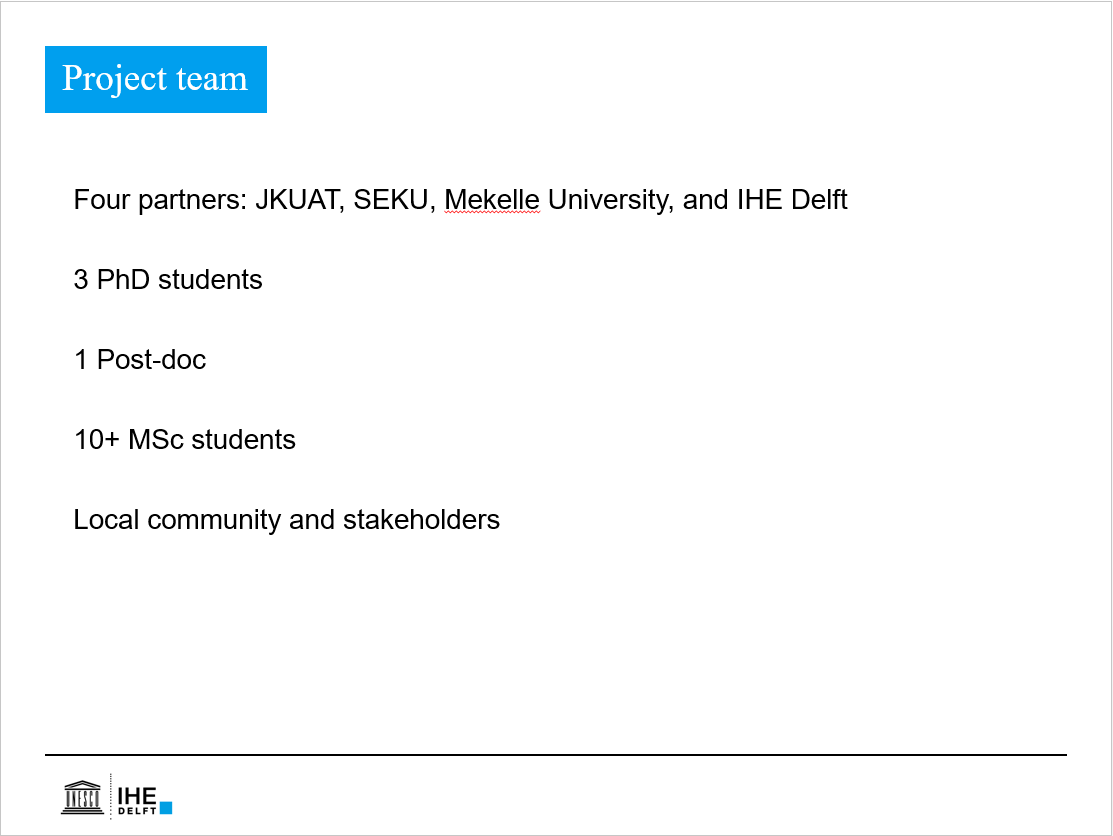
Presentation by Dr. Poolad Karimi on details of the NaBWIG project
